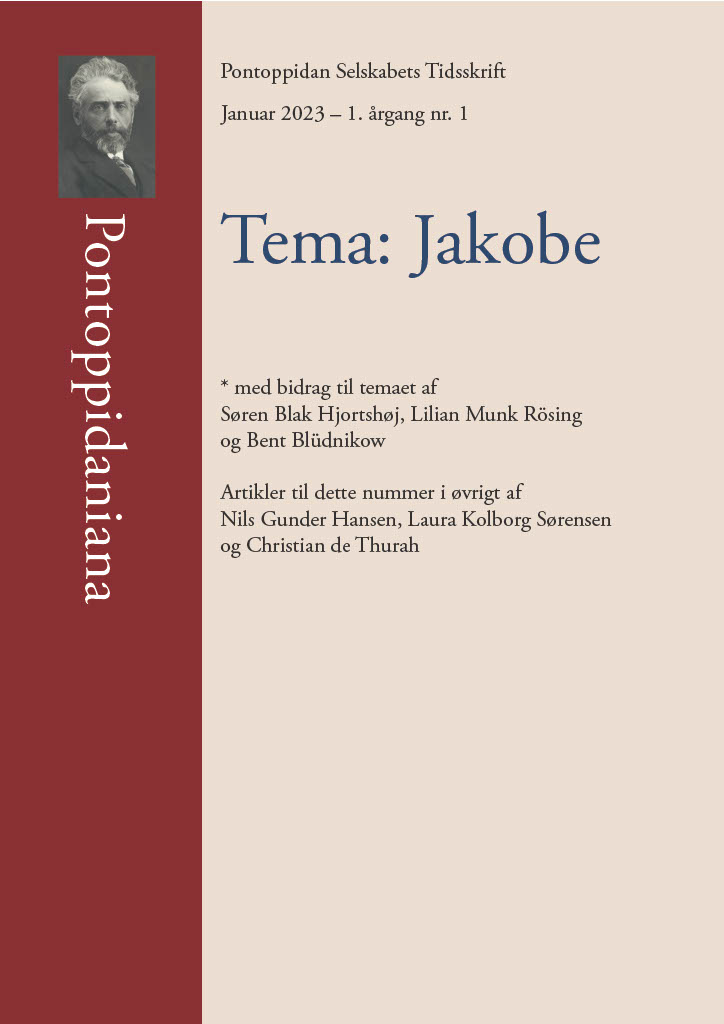Lykke Per som Velfærdsroman
Jakobe Salomons Asyl som Forventningshorisont for den Nordiske Velfærdsstat
DOI:
https://doi.org/10.7146/pontoppidaniana.vi1.135754Resumé
Abstract
This article examines how Lykke-Per discusses the major social changes of this period in a Danish national context through the concepts of “welfare morality,” “welfare” and the synonymous term of happiness (lykke). The book’s two main characters, Per and Jakobe, are seen as exponents of two different understandings of welfare/happiness. Per’s introverted, ascetic preoccupation with finding his own identity and individual happiness, which is in many ways similar to the pietism from which he has been raised, is contrasted with Jakobe’s modern Jewish secular-oriented social engagement. The romance between the two main characters of the novel is seen in the light of Reading for Democracy scholarly research of recent years by which 19th century and early 20th century realist novels are viewed as “democratic imaginations” and horizons of expectation upon which the later Western democratic welfare societies have been built. Søren Blak Hjortshøj interprets the ideas behind Jakobe’s utopian asylum/orphanage for poor children that Jakobe sets up at the end of the novel as an early manifestation of welfare Pontoppidaniana nr. 1/2023 Søren Blak Hjortshøj · Lykke Per som Velfærdsroman ideas that only became reality much later in a Scandinavian context. Also, the article will argues that Jakobe’s microcosmos of the later Nordic welfare state is born out of contemporary debates on Velfærdsmorale which particularly were sparked and initiated by the founder of the Modern Breakthrough Movement, the Danish-Jewish intellectual Georg Brandes.





